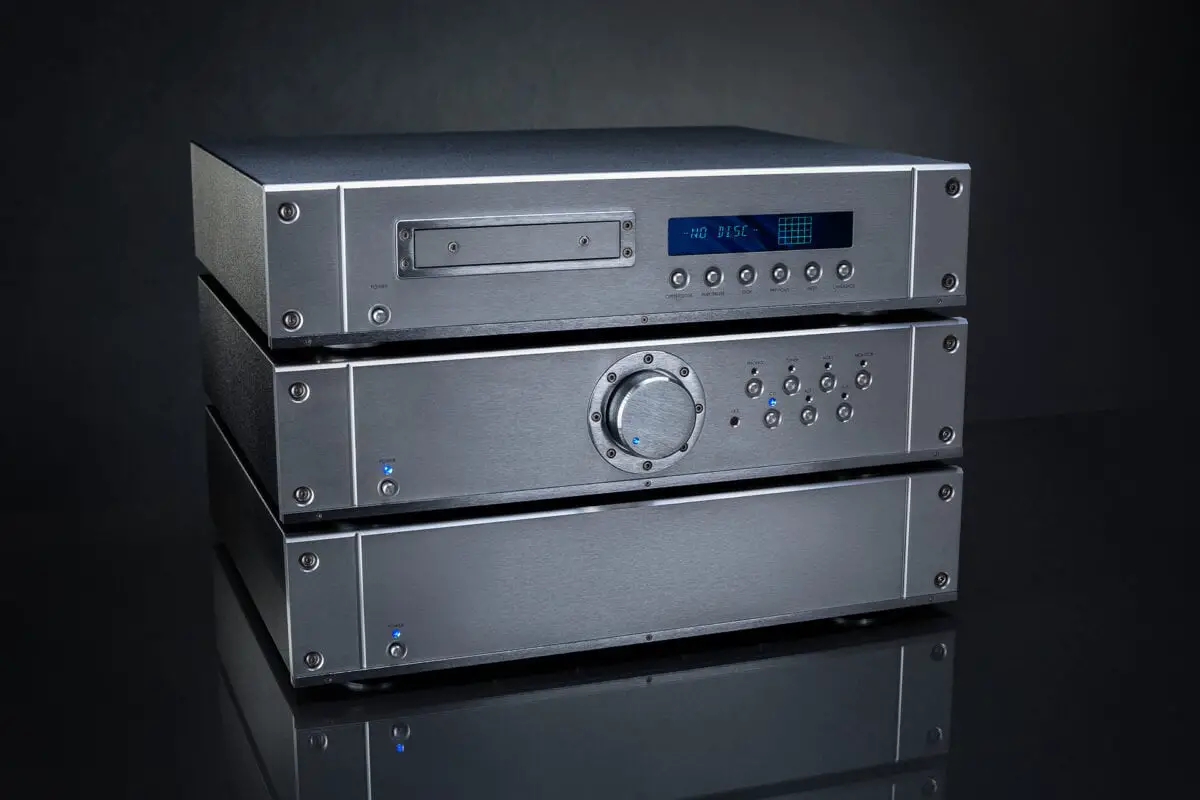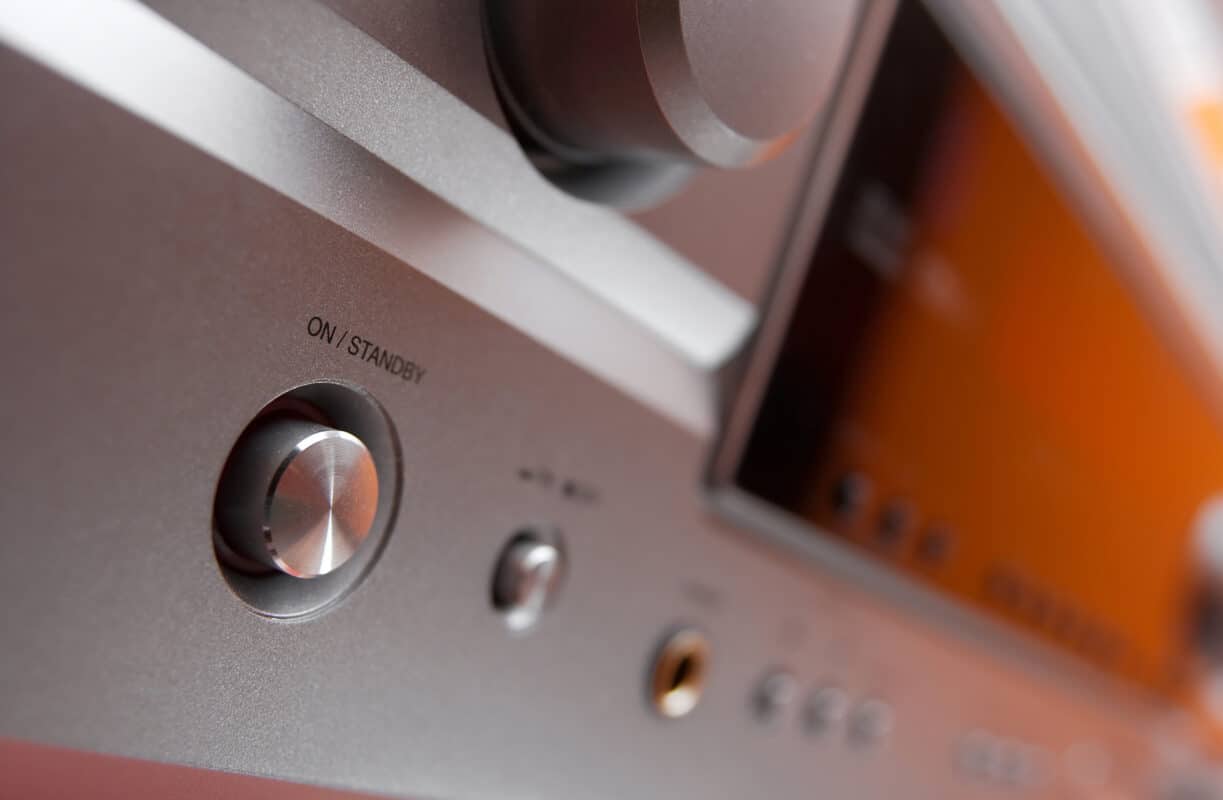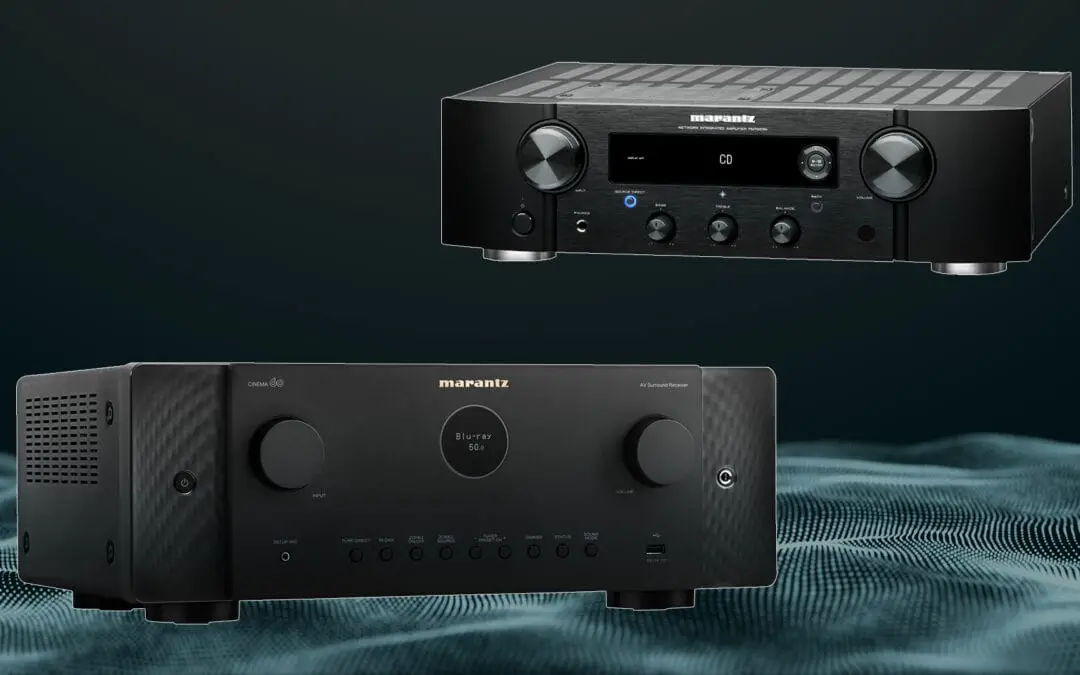Receivers and amplifiers are helpful for a sound system, whether you want to create a dance area or a massive movie theater experience. They are relatively similar products. If you’re investing in these items, you might wonder – do I need a receiver and an amplifier? Can you get away with just one?
Although you can invest in both products, you don’t need a receiver and amplifier. You can get away with just a receiver, as it contains an amplifier already and other tools. You don’t need both to have a home theater sound system in ideal condition.
You’ve come to the right place if you’re interested in learning more about receivers and amplifiers. Read on to learn more about receivers and amplifiers, the pros and cons of each, and other vital information for your home entertainment system. The more you know, the easier it will be to access the necessary technology for your sound needs.
Table of Contents
Receivers Vs. Amplifiers
Although they complete similar tasks, there is a difference between receivers and amplifiers. Understanding this difference before investing in a product is critical to avoid picking the wrong one for your needs.
An amplifier is an electronic device that increases the voltage of a power signal. Typically, an amplifier works to make the sound louder in a system. They are used to raise the power of an amp in the music industry and the television world. They play a critical role in various forms of entertainment.
A receiver is an amplifier with a radio station built into the system, adding a layer to the device. The radio is selected like other inputs, providing direct access to the radio. They came into play fifty years ago, bringing multiple dimensions to the classic amplifier.
An AV receiver is the control hub for your television system, taking in video and audio inputs and pushing them to their respective locations. They are valuable tools in entertainment, whether you’re dealing with visuals or sound.
Some may appreciate the simplicity of an amplifier, while others enjoy receivers. It’s helpful to know the pros and cons of each product to determine which is the best for your system.
Pros and Cons of Receivers
Receivers are excellent tools. In the past, they were just for listening to the radio and amplifying the volume on the same device. Now, they have entered the television system and provide sophisticated sound options for your movies and television shows. There are several pros and cons to an investment in this device.
Here are a few of the pros that come with using a receiver:
- Access to multiple settings at once.
- Optimal control over television.
- A unique and time-tested system.
There are many benefits to accessing a receiver in your system. It’s a quality choice for the ultimate sound and visual combination. However, there are also some cons to consider with this device.
Here are the cons that come with this product:
- They are more expensive than amplifiers.
- They can be confusing to work with.
- They may have unnecessary features for users.

Not everyone needs to add a receiver to their system.
Examining these pros and cons is critical to determine if a receiver is the right selection for your needs. There are good and bad to this product, just like any other piece of technology benefiting entertainment.
Now that we’ve gone over the pros and cons of the receiver, it’s time to touch on the amplifier. What are the good and bad features of this product? What do you need to consider before investing?
Pros and Cons of Amplifiers
Amplifiers are another excellent tool. Although they don’t have as many features as receivers, they don’t need them. Their sole job is to intake sound and raise the volume, allowing speakers to pump out quality noise for entertainment. What are the pros and cons of amplifiers you should consider before investing in one?
Here are the best things about amplifiers:
- Get the job done efficiently.
- They can be found for low prices on the market.
- They are less complicated than receivers.
These will benefit your overall sound experience for music or visual media. Of course, there are also cons to consider with this product.
Here are the worst things about amplifiers:
- Easy to stumble across low-quality products.
- Lack of the tools and abilities of receivers.
- It can be confusing if you have no idea what you’re doing.
These will prove to be too much of an issue for some.
As with the receiver, there are good and bad things to consider with the amplifier. It serves its purpose well, though it doesn’t do as much as the receiver. Carefully consider the pros and cons of both items before making a final choice for your entertainment system.
Now that we’ve gone over the pros and cons of each, what is the real difference between these products? Are amplifiers and receivers the same thing?
Are A Receiver And An Amplifier The Same Thing?
Amplifiers and receivers are very similar. They both intake amps and help direct them to the right place, ensuring speakers and other sound systems pump out music everybody can hear. However, they are not the same thing.
An amplifier’s job is to work with sound. It takes in amps and transitions them to allow noise from speakers and other items. A receiver is an amplifier, but it has other features built in. Some have radios, while others are made to work with sound on your TV to create the best possible visuals and volume during your viewing experience.
Amplifiers and receivers are similar, but they are not the same thing. Ensure you don’t mix them up if you are hunting for one in particular – you won’t get the same experience from an amplifier that you will with a receiver.
Amplifiers and receivers are not the same things. Now, which one sounds better? Is an amplifier better than a receiver when considering sound?

Do Amplifiers Sound Better Than Receivers?
Amplifiers and receivers produce sound, but the receiver has more work to do than an amplifier. If you’re interested in the best sound quality instead of video capabilities, is the amplifier the better choice? Which will sound better if you want to achieve the highest quality music for your entertainment needs?
The amplifier essentially plays music rather than focusing on other tasks. If you purchase a quality receiver, it will play better sound than the typical receiver.
The receiver must receive video and audio signals from every system. It can’t focus as much on the sound as it must simultaneously process and direct multiple signals. That’s ideal for visuals but not as practical if you only want to focus on audio. Purchase an amplifier for the best music system.
If you want the best of the best, you might consider using an amplifier and a receiver. Can you use an amplifier with a receiver?
Can You Use An Amplifier With A Receiver?
Although it isn’t necessary to use an amplifier with a receiver, it’s possible. You should follow a few steps to ensure these items attach correctly, and you will need an integrated amplifier and an AV receiver to complete the process.
If you want to attach an integrated amplifier to an AV receiver, you should:
- Locate the pre-out section on the AV receiver.
- Connect the left and right channels.
- Connect these items to the integrated amplifier.
These items should work together after this point.
Of course, you don’t have to use an amplifier with a receiver. A receiver already has an amplifier built into the system that will work well. However, if you want the ultimate sound experience, attach an amplifier.
Now that we’ve reviewed all the details, should you use a receiver or an amplifier? Which is the better choice?
Should You Use A Receiver Or Amplifier?
There are good and bad qualities to receivers and amplifiers. Both are practical and offer excellent volume selections for all your needs. However, it might feel impossible to pick between the two. Which should you purchase?
Although it’s a little more complicated to put to work, the receiver is traditionally the better choice. Using this product will kill two birds with one stone, ensuring you get the most bang for your buck. They are more convenient to use and will save time and money as you attempt to manage your sound system.
Now that we’ve declared the winner let’s dive into your home system. Do you need a receiver, or should you also purchase an amplifier?
Do Home Theater Systems Need An Amplifier?
Home theater systems need a way to project volume if you want the best sound quality. If you don’t have an amplifier or a receiver, there is little way to project the volume. This issue is especially true if you want a surround sound system. These devices are in charge of pushing the volume up and creating the best experience for you.
Although you can use an amplifier, it’s best to use a receiver for this item. It has an amplifier built into the system and more controls to ensure your home theater has the best sound. If you want a quality experience, you need an amplifier.
A home theater system needs a built-in or external amplifier for an ideal experience. Otherwise, you risk having your speakers sound quiet or muffled. What are the other necessary components of a home theater system?
What Are The Three Major Components of Home Theater Systems?
If you’re building a proper home theater system, knowing all the components is critical. The receiver is just one item for the ultimate experience for viewers.
Here are the three major components of the ideal home theater system:
- AV receiver
- The item for displaying the video
- Video Source
These will create quality sound and an incredible visual element to match.
It takes care to create a home theater many people will enjoy. However, investing in quality versions of these three items will make it happen.
We’ve gone over the three components of a home theater system. What if you’re stuck on the amplifier idea? Is an integrated amplifier better than a receiver?
Is An Integrated Amplifier Better Than A Receiver?
Receivers and integrated amplifiers have different functions in a sound system. If you’re attempting to set up your sound system to the best of your ability, it’s tricky to determine the best item for your needs. Is an integrated amplifier better than a receiver, or is it the other way around for the best sound and visuals?
You should go with a receiver if you are hunting for something to assist with visuals and audio. This system will provide access to more channels and change how your media sounds. It will help create quality pictures to ensure the best possible experience in your home theater.
If you just want to focus on audio, an integrated amplifier will be enough for your system. This item turns sound waves into something greater, pushing noise through your speaker system. It’s straight to the point and will ensure everything in your sound system works properly.
Amplifiers and receivers each serve a purpose in the audio and visual system. It’s up to you to determine the best choice for your needs.
Final Thoughts On Whether You Need A Receiver And An Amplifier
Receivers and amplifiers are excellent additions to a sound system. An amplifier makes things louder, while a receiver does the same thing with additional tools built inside. Although there is nothing wrong with purchasing both, the receiver will benefit your system the most. It is practical and allows various tweaks to volume in one place.
We hope this information was helpful! Not wasting money is critical when investing in a home theater system. Receivers and amplifiers are valuable tools, but you don’t need both options in your home. Save your money and invest in a quality receiver to transform your sound system.
